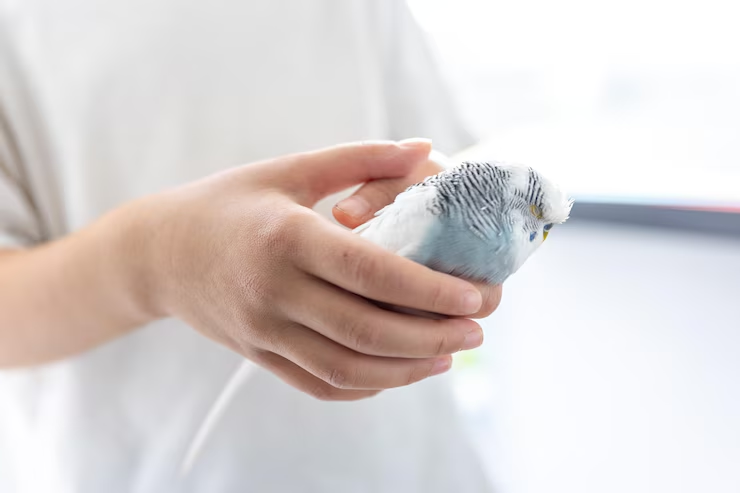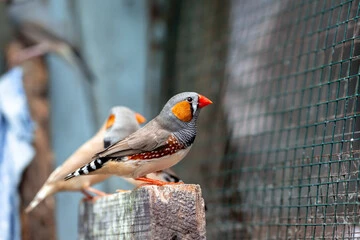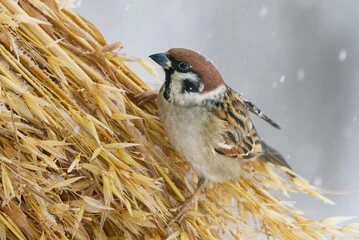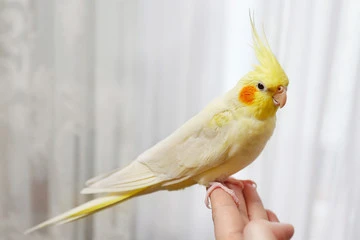Sick Parakeet Symptoms: Best Proven Signs to Keep Them Happy
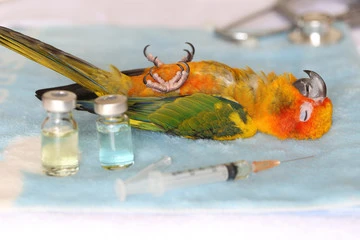
There’s nothing quite like the cheerful chirp of a happy parakeet brightening your day. These small, vibrant birds bring immense joy into our lives with their playful antics and affectionate nature. But as a parakeet owner, you know that these delicate creatures can also fill you with worry when they aren’t their usual lively selves. Recognizing sick parakeet symptoms early can make all the difference—it can save your feathered friend’s life.
In the wild, birds instinctively hide signs of weakness to avoid predators. This means that by the time your parakeet is visibly ill, they may have been sick for a while. That’s why your attentive eye is their first line of defense. In this guide, we’ll walk you through the most common signs of illness, help you understand what they might mean, and show you what steps to take to ensure your bird gets the care it needs.
Table of Contents
Why It’s Crucial to Recognize Sick Parakeet Symptoms Early
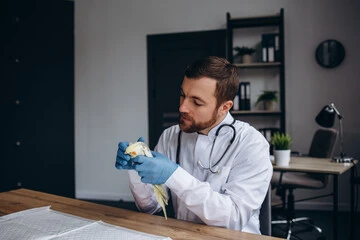
Parakeets, also known as budgerigars, are experts at masking illness. In the wild, showing vulnerability makes them a target. Even in the safety of your home, this instinct remains. That means subtle changes in behavior or appearance are often the only clues you’ll get before a condition becomes severe.
Early detection isn’t just helpful—it’s critical. Many common parakeet illnesses can be treated successfully if caught early but may become fatal if ignored. Your awareness and quick action can literally save your bird’s life.
General Signs of a Sick Parakeet
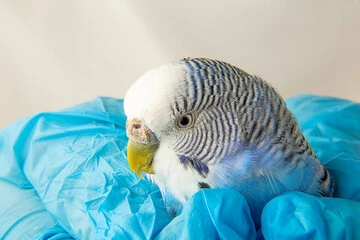
These are the broad behavioral and physical changes that should immediately raise your concern. Often, it’s a combination of these symptoms that tells you something is wrong.
Behavioral Changes
– Lethargy & Increased Sleep: If your bird is sleeping more than usual, sitting quietly at the bottom of the cage, or seems less interested in playing, it’s a sign they aren’t feeling well.
– Loss of Appetite or Thirst: A decline in eating or drinking is one of the most serious signs. Monitor their food and water levels daily.
– Vocalization Changes: A usually chatty parakeet that becomes silent, or one that starts making distressed, constant squawking noises, is likely signaling a problem.
– Personality Shifts: A friendly bird becoming aggressive or a independent bird suddenly becoming overly clingy can indicate discomfort or illness.
Physical Symptoms
– Fluffed-Up Feathers: While birds fluff up to regulate temperature or relax, doing so constantly, especially while perched, is a classic sign of illness as they try to conserve energy.
– Tail Bobbing: A subtle bobbing of the tail with each breath can indicate respiratory distress.
– Changes in Droppings: Color, consistency, and frequency of droppings are key health indicators. Watery, discolored, or unusually smelly droppings are a red flag.
– Discharge: Any discharge from the eyes, nostrils, or mouth, or wet, matted feathers around the face, suggests infection.
Here is a quick-reference table for general symptoms:
| Symptom | What to Look For | Possible Meaning |
|---|---|---|
| Constant Fluffing | Sitting puffed up for hours | Trying to stay warm; common sign of fever or infection |
| Tail Bobbing | Tail moves noticeably with each breath | Respiratory infection, airway blockage |
| Change in Droppings | Green, yellow, or bloody feces; increased water content | Liver issue, infection, parasites |
| Sleeping on Cage Floor | Bird is too weak to perch | Serious illness requiring immediate vet care |
Common Parakeet Illnesses and Their Specific Symptoms
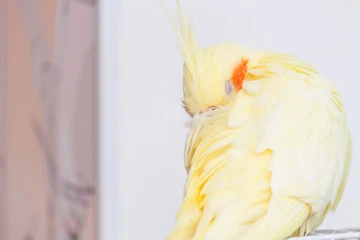
Understanding the diseases behind the symptoms can help you communicate more effectively with your avian vet.
1. Respiratory Infections (e.g., Air Sac Mites, Psittacosis)
Respiratory issues are among the most common parakeet health issues.
– Symptoms: Sneezing, wheezing, clicking sounds when breathing, nasal discharge, tail bobbing, and open-mouth breathing.
– Action: Respiratory distress is an emergency. Isolate the bird, keep it warm, and seek veterinary care immediately.
2. Gastrointestinal Issues (e.g., Sour Crop, Parasites)
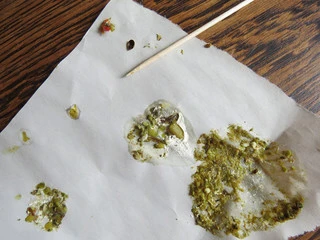
Problems in the digestive tract can cause rapid decline.
– Symptoms: Regurgitation (not to be confused with mating behavior), vomiting, diarrhea, undigested seeds in droppings, and a swollen crop.
– Action: Ensure clean food and water. A vet can diagnose parasites or bacterial infections and prescribe appropriate medication.
3. Feather Plucking & Skin Conditions
This can be a physical or psychological issue.
– Symptoms: Bald patches, broken feathers, red or irritated skin, and constant preening in one area.
– Action: Rule out medical causes like mites or infections first. Then consider stressors like boredom, diet, or environment.
4. Parasites (Mites, Lice, Worms)
– Symptoms: Visible insects, crusty deposits around the beak/eyes (scaly face mites), excessive scratching, weight loss, and restlessness.
– Action: Requires specific anti-parasitic treatment prescribed by a vet. Thoroughly clean and disinfect the cage.
What to Do If You Spot Sick Parakeet Symptoms
Your actions in the first few hours are crucial.
Step 1: Don’t Panic. Stay calm. Your bird can sense your stress.
Step 2: Isolate and Observe. If you have other birds, move the sick one to a separate, warm, quiet cage to prevent disease spread and reduce stress.
Step 3: Provide Supportive Care. Ensure they have easy access to fresh water and their favorite foods. You may need to offer soft foods if they are weak.
Step 4: CALL AN AVIAN VET. This is the most important step. Describe the symptoms clearly. Do not try to diagnose and treat yourself, as many medications are toxic to birds.
FAQ: Sick Parakeet Symptoms
What are the first signs of a sick parakeet?
The very first signs are often behavioral: lethargy, sleeping more, loss of appetite, and being less vocal. They may also sit fluffed up for long periods.
Is a puffed-up parakeet always sick?
Not always. Parakeets puff up to relax, sleep, or stay warm. However, if the puffing is constant and accompanied by lethargy or closed eyes, it is a primary sign of a sick parakeet.
When should I take my parakeet to the vet?
Immediately if you see: difficulty breathing, bleeding, seizures, or inability to perch. You should also schedule a visit for any symptom that lasts more than 24 hours.
Can a sick parakeet get better on its own?
It is very unlikely. Due to their fast metabolism, birds deteriorate quickly. Home remedies are often dangerous. Professional help from a clinic like our recommended bird health care hospital is essential.
Conclusion: Be Your Parakeet’s Hero
Knowing how to spot sick parakeet symptoms is one of the most responsible and loving things you can do as a pet owner. Your vigilant observation is their best hope for a quick recovery. Remember, when in doubt, always err on the side of caution and consult an avian veterinarian. They have the expertise to diagnose and treat the myriad of common parakeet illnesses that can affect our feathered companions.
Your journey to being a prepared parakeet parent doesn’t end here. Continue to educate yourself, trust your instincts, and always provide a loving, safe environment.
Did you find this guide helpful? Have you ever spotted these signs in your own bird? Share your experiences or questions in the comments below—your story could help another parakeet owner!

